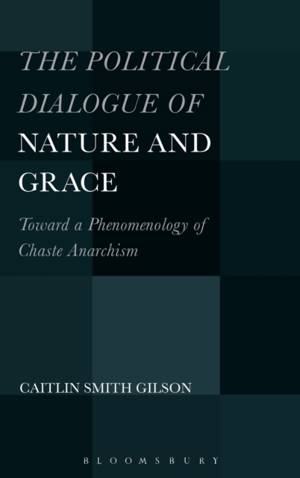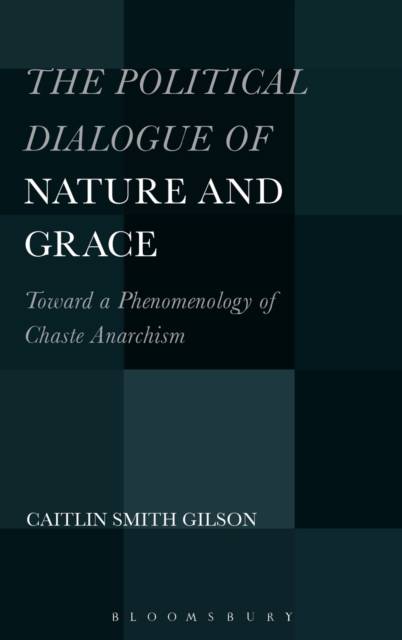
Bedankt voor het vertrouwen het afgelopen jaar! Om jou te bedanken bieden we GRATIS verzending (in België) aan op alles gedurende de hele maand januari.
- Afhalen na 1 uur in een winkel met voorraad
- In januari gratis thuislevering in België
- Ruim aanbod met 7 miljoen producten
Bedankt voor het vertrouwen het afgelopen jaar! Om jou te bedanken bieden we GRATIS verzending (in België) aan op alles gedurende de hele maand januari.
- Afhalen na 1 uur in een winkel met voorraad
- In januari gratis thuislevering in België
- Ruim aanbod met 7 miljoen producten
Zoeken
Political Dialogue of Nature and Grace
Toward a Phenomenology of Chaste Anarchism
Caitlin Smith Gilson
Hardcover | Engels
€ 296,95
+ 593 punten
Omschrijving
The discourse between nature and grace finds its linguistic and existential podium in the political condition of human beings. As Caitlin Smith Gilson shows, it is in this arena that the perennial territorial struggle of faith and reason, God and man, man and state, take place; and it is here that the understanding of the personal-as-political, as well as the political-as-personal, finds its meaning. And it is here, too, that the divine finds or is refused a home.
Any discussion of "post-secular society+? has its origins in this political dialogue between nature and grace, the resolution of which might determine not only a future post-secular society but one in which awe is re-united to affection, solidarity and fraternity. Smith Gilson questions whether the idea of pure nature antecedently disregards the fact that grace enters existence and that this accomplishes a conversion in the metaphysical/existential region of man's action and being. This conversion alters how man acts as an affective, moral, intellectual, social, political and spiritual being. State of nature theories, transformed yet retained in the broader metaphysical and existential implications of the Hegelian Weltgeist, are shown to be indebted to the ideological restrictedness of pure nature (natura pura) as providing the foremost adversary to any meaningful type of divine presence within the polis, as well as inhibiting the phenomenological facticity of man as an open nature.
Any discussion of "post-secular society+? has its origins in this political dialogue between nature and grace, the resolution of which might determine not only a future post-secular society but one in which awe is re-united to affection, solidarity and fraternity. Smith Gilson questions whether the idea of pure nature antecedently disregards the fact that grace enters existence and that this accomplishes a conversion in the metaphysical/existential region of man's action and being. This conversion alters how man acts as an affective, moral, intellectual, social, political and spiritual being. State of nature theories, transformed yet retained in the broader metaphysical and existential implications of the Hegelian Weltgeist, are shown to be indebted to the ideological restrictedness of pure nature (natura pura) as providing the foremost adversary to any meaningful type of divine presence within the polis, as well as inhibiting the phenomenological facticity of man as an open nature.
Specificaties
Betrokkenen
- Auteur(s):
- Uitgeverij:
Inhoud
- Aantal bladzijden:
- 328
- Taal:
- Engels
Eigenschappen
- Productcode (EAN):
- 9781501308185
- Verschijningsdatum:
- 24/09/2015
- Uitvoering:
- Hardcover
- Formaat:
- Genaaid
- Afmetingen:
- 152 mm x 229 mm
- Gewicht:
- 607 g

Alleen bij Standaard Boekhandel
+ 593 punten op je klantenkaart van Standaard Boekhandel
Beoordelingen
We publiceren alleen reviews die voldoen aan de voorwaarden voor reviews. Bekijk onze voorwaarden voor reviews.









